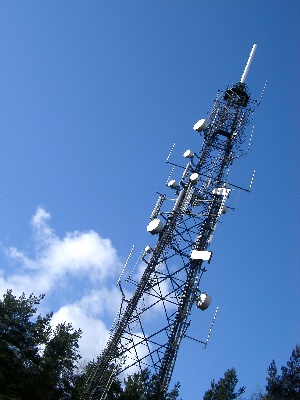Telecom companies experienced at least 600 fibre optic cable thefts within the past year and cuts to their fibre networks that cost more than GH¢10million to repair, the Ministry of Communications has said.
The rampant theft of the cables is a major concern to the companies as they continue to push broadband penetration, which is currently below 25 percent.
The country records on the average 50 fibre cables thefts monthly, Minister of Communications Dr. Omane Boamah said in a speech read for him by Issah Yahaya, Director of Policy Planning, Monitoring and Evaluation at the Ministry, at a Cable Protection workshop on Thursday.
The Minister said the security services are being equipped to battle the increasing spate of thefts, which are being perpetrated in an organized manner.
“While our security agencies are supporting with increased vigilance over the cables, I entreat the industry’s stakeholders to intensify the campaign and education of the population to appreciate the value of the cables and the civic duty to protect them,” he said.
“If we realise how important fibre cables are to our economic development, then we would not ‘kill the goose that is laying the golden egg’ by failing to protect these expensive materials,” the Minister added.
The workshop, organised by Main One Cable Company, was to create awareness among stakeholders whose actions may lead to damage of the company’s 7,000 km fibre-optic cable which is sourced from Portugal and lies along the West African coast.
Country Manager of Main One Joseph Odoi told the B&FT cable theft is a major threat to its operations. He said several meters of their cable are usually stolen by thieves in search of copper.
“Usually, they cut our cables in search of copper. These expensive fibre cables are sold cheap on the black market to be recycled into jewellery.”
Networks operators say cuts to the fibre optic networks reduce their reliability and affect customer experience on mobile phone networks while increasing their cost of operations.
Last year, the number of mobile phone subscriptions surpassed the 25 million mark, which means that cable infrastructure to carry traffic and data services is critical for the six networks operators to meet current demand for speed and capacity.
The Deputy Director-General of the National Communication Authority, Albert Enninful, said the telecom regulator is concerned about the reported incidents of cuts on the cable networks of the operators at a time mobile penetration has crossed the 100 percent mark.
“When networks are down, customers become frustrated and as regulators we are very concerned about the incidence of fibre cuts; the number of incidents that have been reported of late really cause us to question what is going on, hence the need to collaborate with stakeholders to minimise the frequency of cuts on fibre networks.
“The average cost of repairing the cables is about GH¢ 17,000—and with inflation this figure could rise in the coming years. So if we don’t put a hold on this escalating situation, then the operators are going to spend a lot of their resources only repairing fibre cuts, which will eventually affect capacity improvement and laying of additional fibre to carry traffic,” he said.
Business News of Tuesday, 26 March 2013
Source: B&FT













